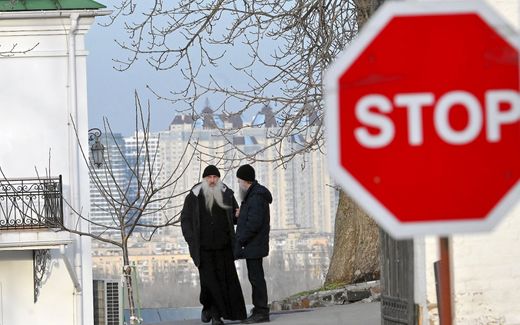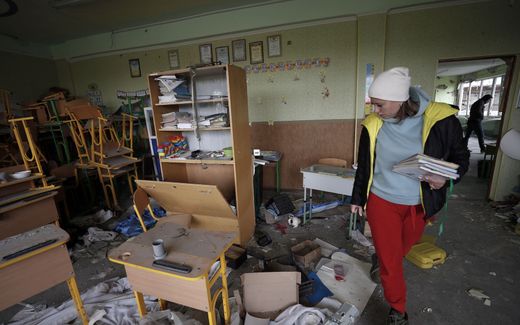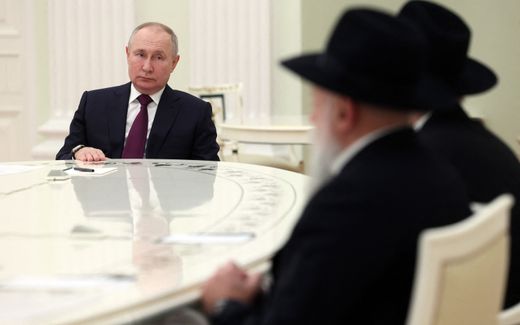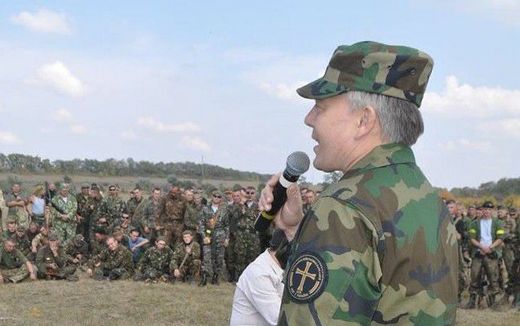Tension mounts around Kyiv church monastery
28-03-2023
CNE.news
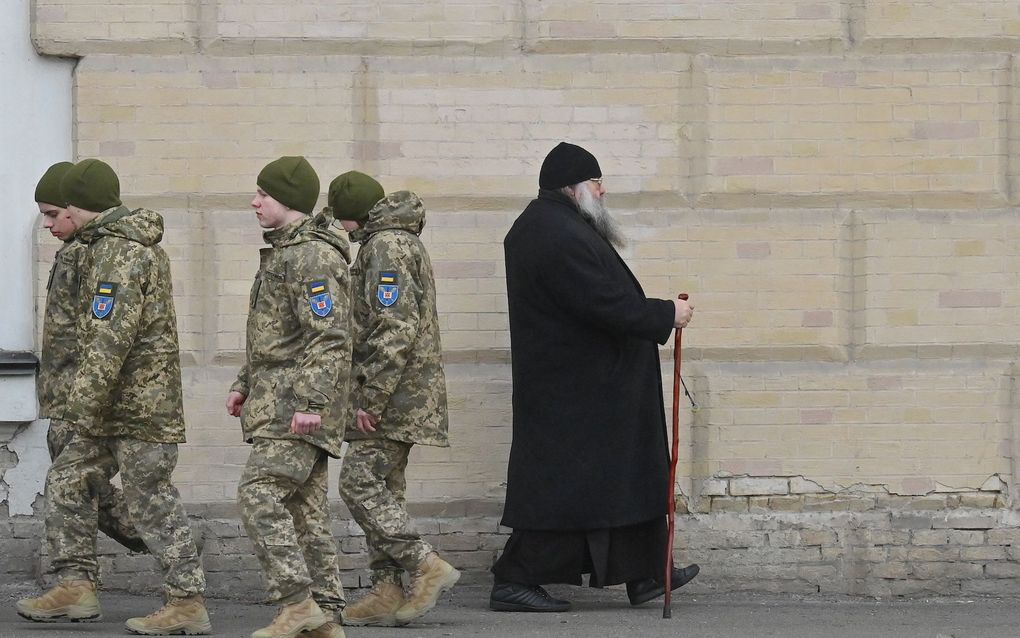
Will soldiers drive the monks out of the monastery in Kyiv on Wednesday? Nobody knows. But there is no compromise between the church and the state yet. Photo AFP, Sergei Supinsky
There is less than one day left until the Ukrainian Orthodox Church's mandatory departure from the famous Kyiv-Pechersk Lavra monastery. In no way does a compromise seem to be in the making. Meanwhile, the UN termed the "security measures" from the state against the church "discriminatory".
The Lavra in Ukraine's capital Kyiv is an 11th-century complex. It is one of the holiest sites for Orthodox churches. Beneath the building are famous caves, where relics of deceased saints are kept, among other things. Over the centuries, the Lavra has attracted countless pilgrims from all over the Orthodox world.
The Lavra is the centre of the Ukrainian Orthodox Church (UOC). That is the traditional church in Ukraine, which is ecclesiastically attached to the Patriarchate in Moscow.
Around the start of the war in February 2022, the UOC fully aligned itself with the Ukrainian government while distancing itself from Patriarch Kirill of Moscow, who, on the contrary, gives ideological support to the Russian aggressor. In May 2022, the UOC declared its independence from the Moscow Patriarchate, but that declaration has not been recognised in Moscow. This means that, in theory, the canonical bond remains. In practice, however, support for the Ukrainian army predominates.
Nevertheless, the government in Kyiv does not trust the UOC and opts for the Orthodox Church of Ukraine (OCU), which was newly established in 2019. That is affiliated with the Patriarchate of Constantinople.
The government has now terminated Lavra's lease as of March 29. The building functions as the headquarters of the UOC. It houses at least 200 monks and all kinds of staff of Metropolitan Onufry. The seminary where new priests are trained (KDAiS) is also in the building.
According to Abbot Pavel's words, the clergy have no intention of leaving the building. That means the situation could turn out to be very unpredictable on Wednesday.
Discriminatory
The United Nations High Commissioner for Human Rights (OHCHR) has heavily criticised Ukraine's treatment of the UOC. According to a report published just before the weekend, the "security measures" around churches and monasteries in at least 12 cities are "discriminatory". Also, the new bill to regulate the church's position is full of "vague legal terminology" and, therefore, cannot count as "prescribed by law" as required by the UN.
Foreign Ministry spokesman Oleg Nikolenko contradicted the report's conclusions. "Freedom is not the same as the right to participate in activities that undermine national security," he wrote. In the "democratic state Ukraine, the freedom of religion is guaranteed", he said.
In the meantime, the security measures around the Lavra increased, as media reported. The impression was given that the police tried to "maximally obstruct the journey to the Lavra".

Caption
On Sunday, thousands of churchgoers gathered for an open-air service at the Lavra led by Metropolitan Onufry, the primate of the UOC. In his sermon, Onufry called on everyone to pray for the situation.
Students of the Kyiv Theological Academy and Seminary (KDAiS) living in the Lavra recorded a video saying they are peaceful and asking to be allowed to continue living there. Given the English subtitles, they have also explicitly targeted the international audience with this video.
Support
Foreign churches (mostly Orthodox, but not exclusively) support the church. For example, there is support for the UOC's position from Bulgaria, Cyprus, Croatia, Georgia and Antioch. Earlier, the World Council of Churches (WCC) supported the UOC. Also, the Russian Orthodox Church interprets the development as a form of suppression of the Ukrainians. No church leader so far has backed Ukrainian President Zelensky on this issue.
Related Articles
No Tags found

